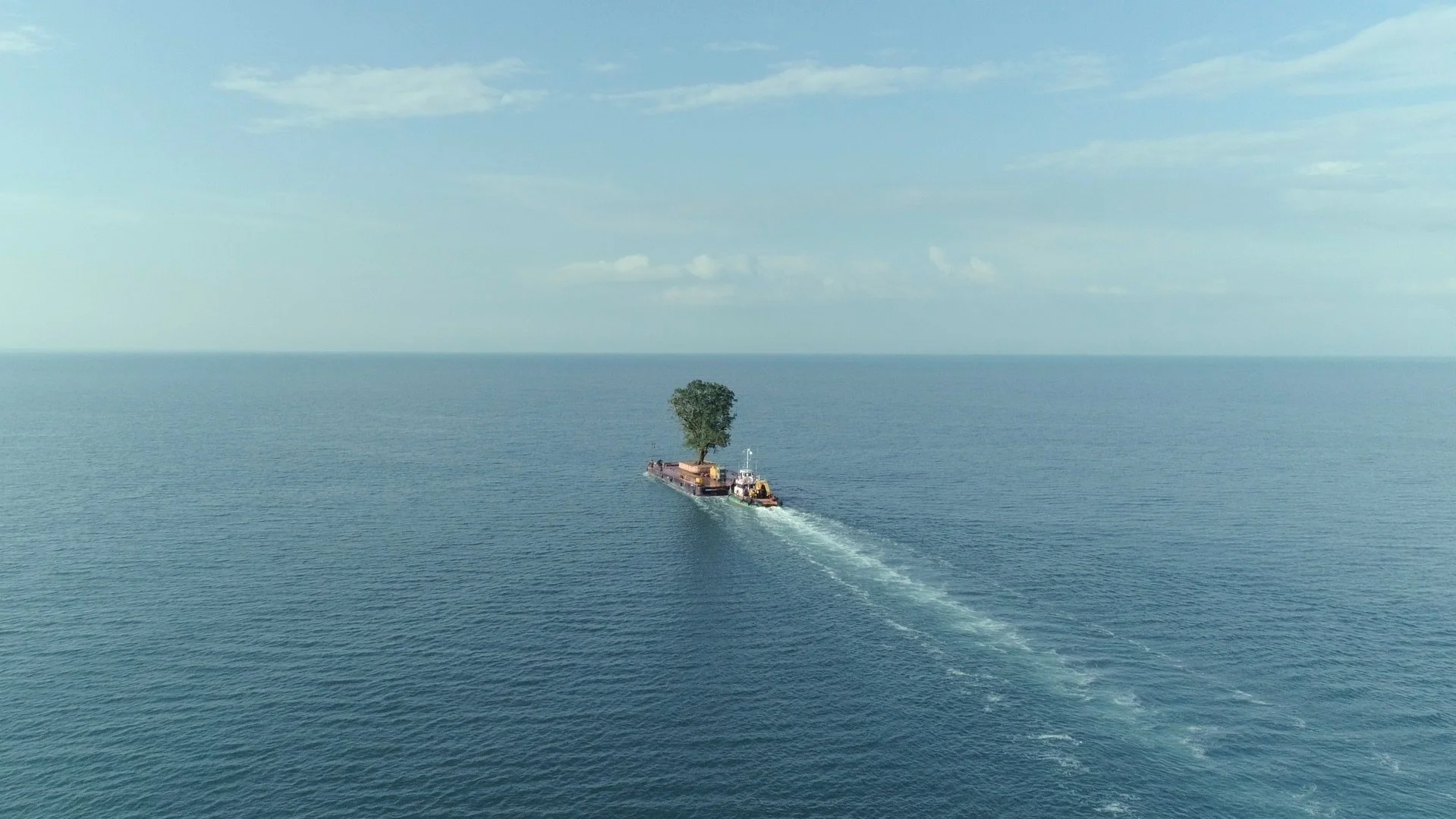Taming the Garden
Salomé Jashi’s offbeat documentary looks at how a billionaire – and Georgia’s former prime minister – uproots communities to tend to his own garden.
Despite containing features that are good and distinctive, this film is something of an oddity no matter how you look at it. That's even true of the title which seems to promise a piece akin to gardening programmes popular on television. Instead, this is a documentary from Georgia (the filmmaker Salomé Jashi was herself born in Tbilisi) and at it centre is the fact that the former prime minister of the country, Bidzina Ivanishvili, has been involved in obtaining ancient trees from rural areas and having them uprooted and then delivered to his own private estate. It is said that he pays for this out of his own money, but his actions will be seen by many as reprehensible. By offering cash payments or the promise of much-needed road building to those on whose land desirable trees stand, he in effect makes them an offer that they don't feel that they can refuse. His actions deprive communities of trees that give character to their original surroundings and the process can readily cause extra incidental damage. What he does could easily be described as a crime against nature and human deprivation is involved too.
Given that the subject matter is so specific you would expect that in spite of the absence of any commentary the film would offer information (in writing if necessary) to put it all in perspective. But, while the setting is seen to be a coastal village, we are never told that this is in Georgia nor that the sea over which the trees will be transported is the Black Sea. There are two brief spoken references to Ivanishvili but no information as to who he is (thankfully I had read a review of the film which enlightened me on this point before I watched it). The situation depicted is, of course, one that touches on the power of money and on damage to the environment. Nevertheless, it isn't obvious material to sustain a full length feature film – and that’s so even if what is shown amply justifies a comment made by one of the villagers (“Life takes some strange turns”).
It's also the case that Jashi’s approach is unusual. However strong her disapproval of what Ivanishvili is seen to be doing, she doesn't show her anger but offers a calm, reserved film which could be thought of as an example of slow cinema. Early on some of the images together with a key use of natural sounds suggest a way of looking at nature that is meditative, but the work that is being done soon obtrudes and certain sequences are technological in character. Overall, though, the film is a reflection on a rich man’s crimes against nature. The qualities of this piece include adept use of music by Stockhausen and Wassermann and at the conclusion ideal sounds are found to build up a montage of trees in the form of Le Chant des Oyseaux by Clément Janequin. Another virtue lies in the beautifully composed images and yet Jashi opts to turn her back on the rich variety of visuals offered by cinema. She does this by virtually excluding close-ups and by creating a film which keeps the audience at a distance through its rigid rejection of camera movement. That's odd in itself, but odder still is the fact that late on Jashi goes back on her choice and twice allows the camera to move. The film is certainly individual but its execution never seems to get the best out of its interesting subject matter.
MANSEL STIMPSON
Dir Salomé Jashi, Pro Vadim Jendreyko. Erik Winker, Martin Roelly and Salomé Jashi, Screenplay Salomé Jashi, Ph Goga Devdariani and Salomé Jashi, Ed Chris Wright.
Mitra Film/Sakdoc Film/Corso Film/Arte-Dogwoof Pictures.
91 mins. Switzerland/Germany/Georgia/Netherlands. 2021. US Rel: 19 January 2022. UK Rel: 28 January 2022. Cert. 15.


